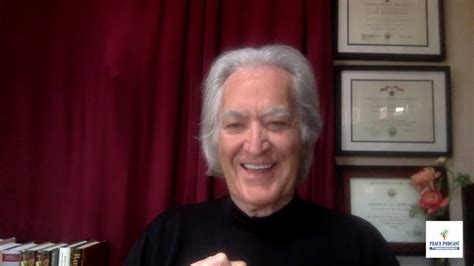A Quote by Julian Baggini
One reason why it has become harder to promote the beneficial side of emotions such as anger is that the moral vocabulary of good and bad has been replaced by the self-help lexicon of positive and negative thinking.
Related Quotes
Positive thinking is just one small part of positive psychology. Plus, as an approach to well-being, positive thinking only helps you to the extent that it yields one or more positive emotions. The problem with positive thinking is that it sometimes just stays up "in the head" and fails to drip down to become a fully embodied experience.
Eventually it became clear that our emotions, attitudes, and thoughts profoundly affect our bodies, sometimes to the degree of life or death. Soon mind-body effects were recognized to have positive as well as negative impacts on the body. This realization came largely from research on the placebo effect—the beneficial results of suggestion, expectation, and positive thinking.
The American journalist Barbara Ehrenreich has written about this in her book Smile or Die: How Positive Thinking Fooled America and the World (2009) . She talks about the happiness industry, the rise of medication to make us happy and of self-help books, and the influence of all this on religion. In many ways religion has become another form of self-help. We all suffer from over-exposure to positive thinking.
Self-discipline, although difficult, and not always easy while combating
negative emotions, should be a defensive measure. At least we will be able to prevent the advent of negative conduct dominated by negative emotion. That is 'shila', or moral ethics. Once we develop this by familiarizing ourselves with it, along with mindfulness and conscientiousness, eventually that pattern and way of life will become a part of our own life.
[When anything happens, we interpret it as good or bad, but...] We do not know what is really good or bad fortune. [Only the future can decide. For example, what appears to be bad today may in fact lead us to a greater good tomorrow and by the very act of thinking and planning in that positive way, we can help make that good future come true.]
I began studying human emotions more than twenty years ago. At that time, almost every scientist working in this area was studying one of the negative emotions, like fear, anger, anxiety, or depression. I wondered why no scientists cared to explain why we humans sometimes feel upbeat and pleasant. I liked the idea of charting new terrain. It's been a fun intellectual puzzle. There's so much to discover!
While holding positive thoughts and emotions is advantageous, positive thinking itself is not "Hallmark Card thinking." It's really an ongoing awareness that all truly is well with the world, with life, and with oneself. It's also a commitment not to mindlessly pass on fears but to bring positive energy, images, ideas, and feelings into the lives of others, to help them attune to the wellness at the heart of the world.
Mentally, physically and emotionally we are the same.
We each have the potential to good and bad and to be overcome by disturbing emotions such as anger, fear, hatred, suspicion and greed. These emotions can be the cause of many problems.
On the other hand if you cultivate loving kindness, compassion and concern for others, there will be no room for anger, hatred and jealousy.
































